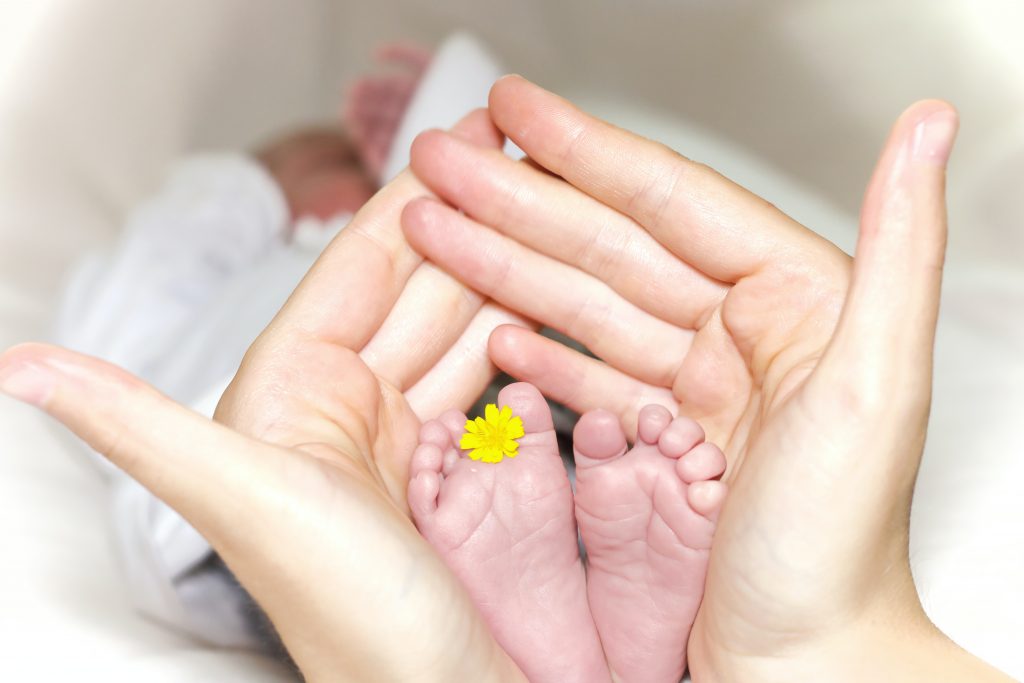
Mental health problems are experienced by 1 in 4 women during pregnancy and into the first two years after birth (Howard et al., 2018). Depression during the perinatal period impairs a mother’s relationships, with potential long-term consequences for her child and family (Letourneau et al., 2012; Moehler et al., 2006).
Loneliness has been consistently highlighted in research on perinatal depression (Highet et al., 2014; Raymond, 2009). Pregnancy and life with a new baby are times of significant transition for mothers, with increased vulnerability to loneliness (Lee et al., 2019), and changes to important relationships with others, with their baby, and to themselves (Moehler et al., 2006; Taylor et al., 2021), suggesting that loneliness might play a unique role in depression during this period. Identifying factors like loneliness, which are closely linked to perinatal depression, improves our understanding of the complex interplays in perinatal depression and provides a target for new and effective interventions.
Adlington and colleagues (2023) conducted a meta-synthesis to develop a ‘big picture’ view of the major themes present across qualitative research on loneliness in perinatal depression, and to answer: how is loneliness experienced by women with perinatal depression, and do we know which factors could improve, or worsen, their loneliness?

Research has identified loneliness to be a feature of perinatal depression, but how this loneliness is experienced and the factors which improve or worsen it are not well understood.
Methods
The authors searched 4 databases from their start dates, for terms relevant to loneliness, qualitative research, perinatal populations, and perinatal depression. Studies were excluded if they were not primary, qualitative studies written in English, or if they examined any participant group other than perinatal women with depression only. A primary researcher identified relevant excerpts within the eligible papers, which were validated by a second researcher, and through an iterative process, overarching themes were developed.
Two unique additions to this study included:
- A Patient Advisory Group (PAG) of lived experience experts contributed their personal reflections of loneliness and perinatal depression to meetings about the study protocol and coding, and helped identify missing themes and data.
- Multidisciplinary meetings were held to consider how the authors’ own views and opinions might influence the conduct and findings of the study (this is “reflexivity”), check protocol compliance, and provide professional input on emerging results.
Results
In total, 27 primary qualitative studies (537 participants) were included. These studies, published between 1992 and 2021, were mostly conducted in Europe, North America, and Australia, with one carried out in Asia.
Eight overarching themes were identified, which were synthesised under the 3 main research questions.
1. How is loneliness experienced by women with perinatal depression?
a. Self-isolation, hiding symptoms, and stigma in loneliness
- Women reported shame around their depression and feared being considered a ‘bad’ mother. Stigmatising experiences related to depression or parenting contributed to this, particularly for socially-disadvantaged mothers who also experienced discrimination due to their minority status.
- Often due to these fears of judgment and taboos around help-seeking, some women withdrew socially or hid their symptoms. This magnified their loneliness, and could delay diagnosis and treatment.
b. Emotional disconnection in perinatal depression fuels loneliness
- Women struggled to connect with other mothers, despite wanting to. Interactions felt inauthentic; mothers felt like ‘frauds’ for not sharing their true experiences, and felt they’d never be understood.
- Women felt disconnected from their baby, which was linked to shame or self-loathing. Emotional loneliness was also exacerbated by the need to constantly be around their baby.
- A loss of, or fragmented sense of identity was another way that women felt disconnected, such as through a perceived inability to enjoy life as they used to or an inability to recover their ‘old self’.
c. A mismatch between expected and actual support
- Women reported a disconnect between the support they had anticipated receiving, and the support actually offered. Emotional support (e.g. listening and being supportive) was distinguished from instrumental support; the former was more important for loneliness, but was not always offered.
- Loneliness was uniquely affected by women’s difficulties to connect with their partners, particularly by the loss of features like intimacy. A ‘mis-match’ also emerged in the gender-balance of some relationships, where women took on main caregiving responsibilities and often felt unsupported.
2. What makes loneliness better in perinatal depression?
- Opportunities to receive peer support from other mothers with experiences of perinatal depression were comforting and helped to overcome fears of being judged and feelings of disconnection. Peer support was particularly helpful in a support group setting, and between mothers with shared cultural backgrounds.
- Validation and understanding from healthcare professionals reduced feelings of loneliness and perinatal depression; this was also recognised by the Patient Advisory Group (PAG) members.
- Experiences of loneliness were improved by receiving practical support from family, which provided mothers with an opportunity to have ‘alone time’ to connect with their old and new ‘selves’.
3. What makes loneliness worse in perinatal depression?
- Loneliness and perinatal depression exacerbated disadvantages experienced by women from marginalised communities, including teenage or immigrant mothers, or mothers from minority ethnic groups. Marginalised mothers experienced a “double burden” of loneliness, due to increased stigma and poorer social support. In immigrant mothers, this was coupled with “mourning” their separation from their home countries and supportive cultural practices.
- Conflict with, or poor support from partners and family, and a lack of professional support were two themes which worsened loneliness across women with perinatal depression, e.g., women felt lonelier when healthcare professionals minimised their symptoms.

The quality and nature of support received from others were central to experiences of loneliness among women with perinatal depression, including isolation, stigma, and a mismatch between expected and actual support.
Conclusions
- Adlington et al. (2023) have highlighted “the centrality of loneliness” experiences in perinatal depression, by evidencing how loneliness has been reported throughout the existing qualitative literature.
- This synthesis also revealed that disadvantaged mothers experience a ‘double burden’ of stigma and poor social support.
- The results support the idea that loneliness can be both a cause and a consequence of depression (Achterbergh et al., 2020), through isolation, inability to cope, or relationship breakdown.

This meta-synthesis supports the idea that loneliness can be both a cause and consequence of perinatal depression.
Strengths and limitations
This review addresses a significant gap in the available research addressing features of perinatal depression, through a synthesis of the qualitative experiences of loneliness. One core strength was the involvement of the Patient Advisory Group, and a person with lived experience of perinatal depression as a co-author of the paper. This co-production has contributed to an overall richer commentary and reflections on the themes.
Some limitations of the study include:
- Only one of the 27 studies examined loneliness in perinatal depression as a primary aim. All other included studies are unlikely to have directly probed experiences of loneliness, in turn reducing the depth of the available data.
- The included studies were mostly conducted in Western cultural contexts, and interestingly, some women from ethnic minority backgrounds considered that being separated from the support and companionship of their cultural practices exacerbated their depression and loneliness. For example, grandparenting across Asia is central to intergenerational relationships, compared to in the US where grandparenting most often happens when parents are otherwise unable to provide care (Baker and Silverstein, 2012; Knodel and Nguyen, 2015). This exemplifies different cultural practices, and that future research exploring loneliness in perinatal mental illness in ‘non-Western’ countries would facilitate application of the findings to broader cultural contexts.

Involvement of the Patient Advisory Group of women with lived experience of perinatal depression helped to identify missing themes during analysis, improving the validity of this study’s conclusions.
Implications for research, clinical practice, and policy
More primary research which directly probes the experiences of loneliness in women with perinatal depression as a primary aim is required, as existing work has instead explored more general social experiences in perinatal mental illness. A particular recommendation made by Adlington et al. (2023) is that future studies use the key themes from this study as a guide for future qualitative work in this area. Research examining the influence of systemic barriers to accessing care on the experience of loneliness, and the utility of interventions for partners/second parents on the causes, signs, and risks of perinatal loneliness, would also support the design and application of appropriate interventions.
As the perinatal period is a time of increased health and social care involvement, it may be an optimal time to intervene early in depression. Specifically, the authors suggest assessing for loneliness and depression symptoms throughout perinatal care. This can support the provision of professional input (like support groups), which women identified as particularly helpful.

This research provides support for the utility of peer support groups for women experiencing perinatal depression, including culturally-specific groups, and can be used to inform their design and implementation.
This review, alongside evidence of the barriers marginalised women face when accessing perinatal mental healthcare (Pilav et al., 2022), demonstrates the importance of ensuring that prospective service investment and development projects make provisions for marginalised mothers. This is especially important considering recent investment in perinatal mental health services through the NHS Long Term Plan, to ensure all mothers are adequately supported. Example provisions include: training on stigma and culturally competent approaches for professionals, or adapted interventions which are co-produced by lived experience experts (Darwin et al., 2022; Pilav et al., 2022).
Importantly, this paper received significant media attention, and has been reported in several international media outlets. When research enters public awareness in free and accessible formats (much like The Mental Elf), mothers and families affected by loneliness and perinatal depression can hopefully feel understood by reading experiences which reflect their own. In one such publication in The Independent, senior author Sonia Johnson recognised that loneliness is a common experience, and that the impact of perinatal mental illness can be reduced by validation:
It’s okay to feel such feelings.
Statement of interests
No conflicts.
Links
Primary paper
Adlington, K., Vasquez, C., Pearce, E. et al. ‘Just snap out of it’ – the experience of loneliness in women with perinatal depression: a meta-synthesis of qualitative studies. BMC Psychiatry 23, 110 (2023). https://doi.org/10.1186/s12888-023-04532-2
Other references
Achterbergh, L., Pitman, A., Birken, M., Pearce, E., Sno, H., & Johnson, S. (2020). The experience of loneliness among young people with depression: a qualitative meta-synthesis of the literature. BMC psychiatry, 20(1), 1-23.
Baker, L., & Silverstein, M. (2012). The wellbeing of grandparents caring for grandchildren in China and the United States. In Contemporary Grandparenting (pp. 51-70). Policy Press.
Barnett-Page, E., & Thomas, J. (2009). Methods for the synthesis of qualitative research: a critical review. BMC medical research methodology, 9(1), 1-11.
https://www.cos.io/initiatives/prereg (Center for Open Science, 2018)
Darwin, Z., Blower, S. L., Nekitsing, C., Masefield, S., Razaq, R., Padgett, L., … & Dickerson, J. (2022). Addressing inequalities in the identification and management of perinatal mental health difficulties: The perspectives of minoritised women, healthcare practitioners and the voluntary sector. Frontiers in Global Women’s Health.
Gavin, N. I., Gaynes, B. N., Lohr, K. N., Meltzer-Brody, S., Gartlehner, G., & Swinson, T. (2005). Perinatal depression: a systematic review of prevalence and incidence. Obstetrics & Gynecology, 106(5 Part 1), 1071-1083.
Highet, N., Stevenson, A. L., Purtell, C., & Coo, S. (2014). Qualitative insights into women’s personal experiences of perinatal depression and anxiety. Women and Birth, 27(3), 179-184.
Howard, L. M., & Khalifeh, H. (2020). Perinatal mental health: a review of progress and challenges. World Psychiatry, 19(3), 313-327.
Howard, L., Ryan, E., Trevillion, K., Anderson, F., Bick, D., Bye, A., Byford, S., O’Connor, S., Sands, P., Demilew, J., Milgrom, J. & Pickles, A. (2018) Accuracy of the Whooley questions and the Edinburgh Postnatal Depression Scale in identifying depression and other mental disorders in early pregnancy. The British Journal of Psychiatry, 212 (1), 50-56. Available from: https://doi.org/10.1192/bjp.2017.9
Knodel, J., & Nguyen, M. D. (2015). Grandparents and grandchildren: care and support in Myanmar, Thailand and Vietnam. Ageing & society, 35(9), 1960-1988.
Lachal, J., Revah-Levy, A., Orri, M., & Moro, M. R. (2017). Metasynthesis: an original method to synthesize qualitative literature in psychiatry. Frontiers in psychiatry, 8, 269.
Lee, K., Vasileiou, K., & Barnett, J. (2019). ‘Lonely within the mother’: An exploratory study of first-time mothers’ experiences of loneliness. Journal of health psychology, 24(10), 1334-1344.
Letourneau, N. L., Dennis, C. L., Benzies, K., Duffett-Leger, L., Stewart, M., Tryphonopoulos, P. D., … & Watson, W. (2012). Postpartum depression is a family affair: addressing the impact on mothers, fathers, and children. Issues in mental health nursing, 33(7), 445-457.
Moehler, E., Brunner, R., Wiebel, A., Reck, C., & Resch, F. (2006). Maternal depressive symptoms in the postnatal period are associated with long-term impairment of mother–child bonding. Archives of women’s mental health, 9, 273-278
NHS. The NHS Long Term Plan. (2019). https://www.longtermplan.nhs.uk/
Oates, M. (2003). Suicide: the leading cause of maternal death. The British Journal of Psychiatry, 183(4), 279-281.
Okagbue, H. I., Adamu, P. I., Bishop, S. A., Oguntunde, P. E., Opanuga, A. A., & Akhmetshin, E. M. (2019). Systematic review of prevalence of antepartum depression during the trimesters of pregnancy. Open access Macedonian journal of medical sciences, 7(9), 1555-1560.
Pilav, S., De Backer, K., Easter, A., Silverio, S. A., Sundaresh, S., Roberts, S., & Howard, L. M. (2022). A qualitative study of minority ethnic women’s experiences of access to and engagement with perinatal mental health care. BMC Pregnancy and Childbirth, 22(1), 1-13.
Raymond, J. E. (2009). ‘Creating a safety net’: Women’s experiences of antenatal depression and their identification of helpful community support and services during pregnancy. Midwifery, 25(1), 39-49.
Research focuses on one ‘key factor’ in why new mothers feel depressed. (2023, February 28). The Independent. https://www.independent.co.uk/news/uk/loneliness-experts-university-college-london-b2290861.html
Schiavo, J. H. (2019). PROSPERO: an international register of systematic review protocols. Medical reference services quarterly, 38(2), 171-180.
Taylor, B. L., Howard, L. M., Jackson, K., Johnson, S., Mantovani, N., Nath, S., … & Sweeney, A. (2021). Mums alone: exploring the role of isolation and loneliness in the narratives of women diagnosed with perinatal depression. Journal of Clinical Medicine, 10(11), 2271.
Tong, A., Flemming, K., McInnes, E., Oliver, S., & Craig, J. (2012). Enhancing transparency in reporting the synthesis of qualitative research: ENTREQ. BMC medical research methodology, 12(1), 1-8.
Photo credits:
- Picture 1 by Manuel Schinner on Unsplash
- Picture 2 by Edu Grande on Unsplash
- Picture 3 by Simon Launay on Unsplash
- Picture 4 by Jason Goodman on Unsplash
- Picture 5 by LinkedIn Sales Solutions on Unsplash
